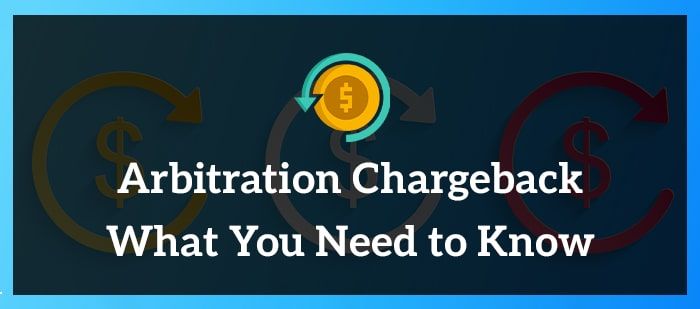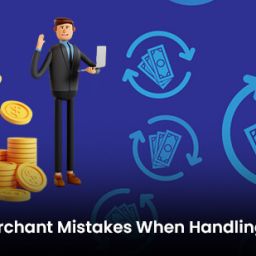
Have you ever made a purchase with your credit card and later found out that the product or service you received was not as advertised? Or have you been charged for a transaction that you did not authorize? These situations can be frustrating and leave you wondering what your options are.
This is where arbitration chargeback comes into play. Arbitration chargeback is a dispute resolution process that allows consumers to challenge credit card charges and seek a refund. In this blog post, we will delve into what arbitration chargeback is, how it works, and what you need to know to successfully navigate the process.
So if you’ve ever found yourself in a dispute with a merchant, keep reading to learn more about arbitration chargeback and how it can protect your rights as a consumer.
Understanding the Basics of Arbitration Chargeback
Arbitration chargeback is a vital tool in the consumer protection arsenal, providing a way for cardholders to dispute a charge directly with their credit card issuer. When a consumer identifies a transaction that they believe is fraudulent or for goods and services not received as promised, they can initiate an arbitration chargeback. This process involves the cardholder formally notifying their credit card company of the disputed transaction, which then triggers an investigation into the claim.
The credit card issuer reviews the evidence presented by both the cardholder and the merchant to determine the legitimacy of the chargeback request. It’s important to note that arbitration chargeback differs from a standard chargeback in that it represents a final step in the dispute process, often used when initial chargeback attempts have failed and the issuing and acquiring banks cannot agree on a resolution.
Arbitration is conducted under the rules and guidance of the card network (e.g., Visa, MasterCard) and involves a more formal review process. If the arbitration chargeback is ruled in favor of the cardholder, the disputed amount is credited back to their account, and the merchant is charged a fee for the failed transaction. This process underscores the importance of keeping detailed records and providing clear evidence when disputing a transaction.
Some Related Blogs
- 5 Proven Strategies for Managing Chargebacks
- Loyalty Fraud: Unmasking the Threat of Chargebacks
- Understanding the Importance of Fighting a Chargeback
- Understanding Mastercard Installments: A Comprehensive Guide
The Process of Filing an Arbitration Chargeback
Filing an arbitration chargeback involves several critical steps that require attention to detail and adherence to deadlines. Initially, the cardholder must contact their credit card issuer to dispute a charge, highlighting their intention to seek an arbitration chargeback if necessary.
This initial dispute is the preliminary stage where the cardholder and merchant are given the opportunity to resolve the issue. If this dispute does not resolve satisfactorily, the cardholder can then move forward with the arbitration chargeback process.
The cardholder needs to submit a formal request for arbitration to their credit card issuer, including all relevant documentation and evidence supporting their claim. This evidence might consist of correspondence with the merchant, receipts, contracts, or any other documentation that proves the transaction was fraudulent or the product/service was not as promised.
Once the request is submitted, the credit card issuer reviews the provided documentation and decides whether to proceed with the arbitration process. If the issuer supports the arbitration, the case is forwarded to the card network (e.g., Visa, MasterCard), which then appoints an independent arbitrator to review the case.
Throughout this process, it’s crucial for the cardholder to adhere to the card network’s specific timelines and documentation requirements. Failure to do so may result in the dismissal of the arbitration chargeback request.
Common Reasons for Arbitration Chargebacks
Arbitration chargebacks are initiated for a variety of reasons, but some of the most common include fraudulent transactions, where the cardholder claims they did not authorize the purchase or suspect identity theft. Another frequent cause is dissatisfaction with goods or services received.
![]()
Email us anytime!
Email customer service 24/7
![]()
Call us anytime!
Reach customer care 24/7 at +1 (888) 901-8653
Such as when products arrive damaged, significantly not as described, or fail to meet the expected quality standards. Disputes over billing errors also lead to arbitration chargebacks, including instances where a customer is double-billed, charged the incorrect amount, or continues to be billed for a subscription they have canceled.
Additionally, non-receipt of purchased goods or services often triggers the arbitration chargeback process, particularly when the merchant fails to provide proof of delivery or the item is lost in transit. These scenarios underscore the importance of clear communication between merchants and consumers and the need for maintaining robust transaction and communication records to support or dispute a chargeback claim.
Strategies to Avoid Arbitration Chargebacks
To minimize the risk of encountering arbitration chargebacks, both consumers and merchants must adopt proactive strategies. For merchants, clear and transparent communication with customers about product descriptions, return policies, and transaction processes is crucial.
It’s essential to provide accurate descriptions and images of products, respond promptly to customer inquiries, and resolve disputes amicably before they escalate. Additionally, implementing secure payment systems and verifying customer information can prevent fraudulent transactions.
For consumers, keeping detailed records of transactions, including receipts, emails, and correspondence with merchants, is vital. Be vigilant about reviewing credit card statements regularly to spot any unauthorized charges quickly. When issues arise, contact the merchant directly to seek a resolution before initiating a chargeback. This approach often resolves the problem more swiftly and avoids the complexities of the arbitration chargeback process.
By fostering a culture of transparency and maintaining open lines of communication, both parties can significantly reduce the frequency of disputes that lead to arbitration chargebacks. These strategies not only protect the financial interests of consumers and merchants but also contribute to a more trustworthy and efficient marketplace.



